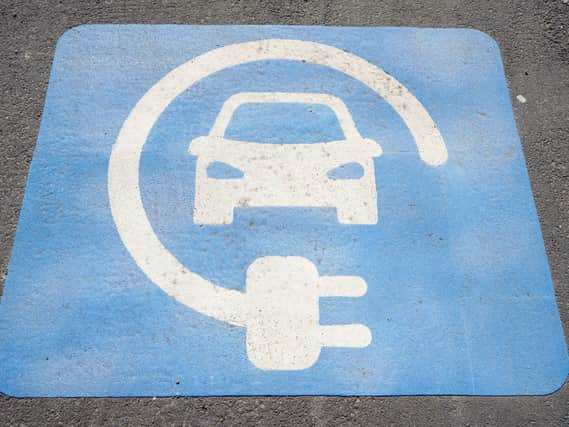Letters - Wednesday, April 21, 2021


I am very much in favour of the move to electric vehicles and in particular private cars. There is however going to be a problem. Charging them up.
Although I do not own one and am unlikely to do so, I have ridden in one on several occasions. One thing is clear, put your foot down and the power used is substantial. Travel at speed and the same applies.
Advertisement
Hide AdAdvertisement
Hide AdGreat Britain is a small island relative to its population with an overall speed limit of 70mph. We have an HGV limit of 56mph and coaches 62mph, yet no restriction on private cars.
Speed limiters on all new ones would do a deal to help reduce the problem of finding the power to top up, particularly at times of peak demand, and encourage the use of trains for longer journeys.
Finally there is the small matter of safety when many conventional vehicles appear capable of approaching twice the national speed limit and a few near half that of the sound barrier. Clearly electric cars will soon catch up.
I acknowledge the problem of joining a motorway in particular. On more than one occasion I have had to accelerate to near 80mph to get ahead of an HGV which had its speed limiter delimited. Perhaps 80mph would be an acceptable figure to cover this problem.
Bob Swallow
via email
ROYALTY
Prince Philip, the refugee
Advertisement
Hide AdAdvertisement
Hide AdLike many of us I’ve been reading a lot over the last few days about the life of Prince Philip, Duke of Edinburgh.
Much has been written about his service to the nation – as a naval officer in the Second World War, as consort and husband to Queen Elizabeth for more than 70 years, his passion for conservation and his support for children and young people through the DofE Award Scheme.
But I have been particularly struck by how Prince Philip’s early life began as a refugee and an asylum seeker.
He had to flee the land of his birth at the age of 18 months after a military coup in Greece; he was brought ashore to France in an orange crate for a cot.
Advertisement
Hide AdAdvertisement
Hide AdHe was then passed around from country to country and family member to family member after his parents split up, often skint and alone, until he eventually found some stability at boarding school in Britain.
Then he joined the Royal Navy as a young cadet – if you can count signing up for the Royal Navy in 1939 as stability!
Prince Philip’s life is a reminder that Britain has a long and proud history of welcoming asylum seekers and refugees to our shores, and of valuing the contribution they make to our national life. And what an amazing contribution he has made.
The Bible has a lot to say about how we should treat aliens and foreigners. Repeatedly in the book of Exodus we read: “Do not mistreat or oppress a foreigner, for you know how it feels to be a foreigner, for you were aliens in Egypt.” My prayer for our country as we remember Prince Philip is that this land will continue to be a safe haven for refugees and asylum seekers; where they are made welcome and enabled to make a contribution to our national life, just as he has, and that in so doing we will model something of the inclusive welcome of God’s kingdom.
Ven Mark Ireland,
Archdeacon of Blackburn
POLITICS
True fight for Afghanistan
Advertisement
Hide AdAdvertisement
Hide AdTo have legitimacy, the bulk of ground troops opposing the forces of misogyny and oppression in Afghanistan must be Afghan. They need to mobilise those with most invested in this struggle. There can be no entitlement to a life that is free, comfortable and safe while this requires others to fight and die.
So long as even a part of Afghanistan holds out there will be no Afghan refugees in the West, only deserters.
If all is lost then those deserving of sanctuary will have fought long and hard to prevent this, they will be few (or they would not have lost) and they will be predominantly women (and not, as now, mostly young men).
If we can compel Afghans to return home then we can bring them here for military and other training. We should, in particular, provide hand guns and the training to use them so that Afghan women pursuing a career outside of the home are not a soft target for assassins.
Advertisement
Hide AdAdvertisement
Hide AdAfghanistan should never have been viewed as a chance to showcase democracy or our military capability. It shouldn’t have been used to off-shore our own wars on terrorism and on drugs.
The true fight is for the freedoms desired by the people living there.
John Riseley
address supplied